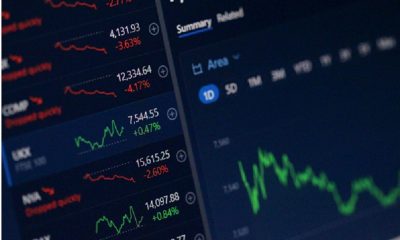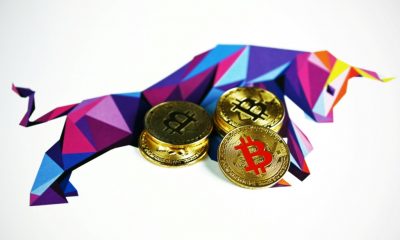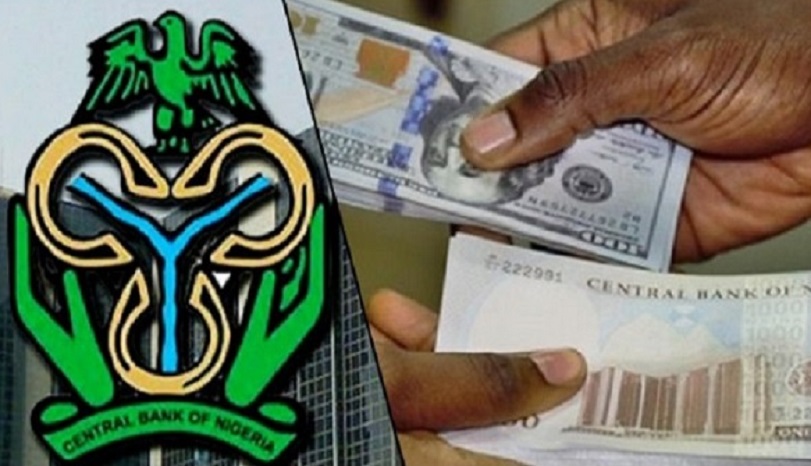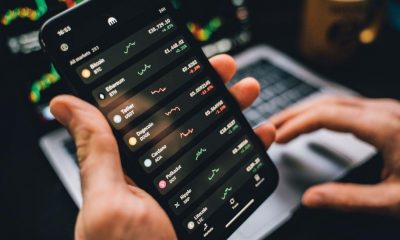Economy
Crypto Trading is Thriving in Africa Amid COVID Restrictions
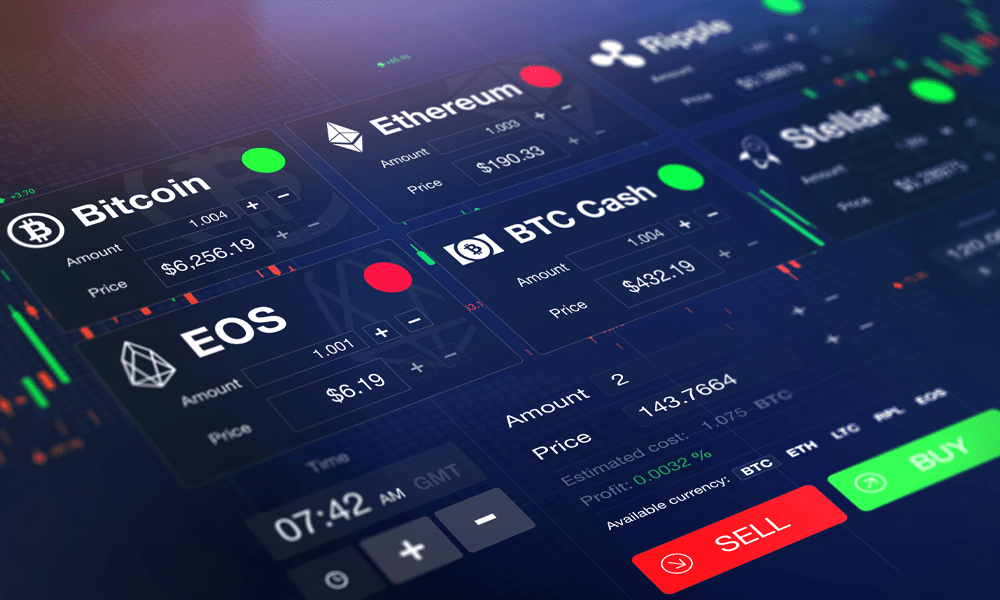
The ongoing COVID-19 pandemic has affected many people around the world. Due to the restrictions brought upon because of the spread of the virus, many people globally had problems going on with their regular daily lives.
Among many regions and parts of the world that suffered due to the spread of the virus was Africa. Many of the countries in the region reported increasing unemployment numbers. In such an environment, many Africans found crypto investments and trading as a way out of the hardships.
Crypto allowed people in the region the opportunity to transact their money freely and within a few minutes without having to deal with huge transaction fees. While the regulatory framework around crypto in Africa is far from being established, people are still using cryptos very actively.
The interest of Africans in the crypto trading market is increasing every single day in the region and showing the highest adoption rate of cryptos around the world. In some countries of Africa, the regulatory agencies are very strict when it comes to crypto activities.
In fact, some of the governments have totally banned crypto activities, including trading and investing. But, such heavy regulations seem to not affect the popularity of cryptocurrencies in the region. In fact, the interest has increased even more after such strict regulations were adopted in some of the African countries.
Africa is using the cryptocurrency market for numerous different reasons, including for doing business, protecting their savings and funds, and also sending and receiving funds overseas.
Why is Crypto So Popular in Africa?
There are many reasons behind the huge popularity of the crypto trading market in Africa. One of the main reasons why so many people have decided to turn to cryptocurrencies in the region is that they have had enough bad experiences with fiat currencies and they want to protect their funds from the effects of inflation.
Another very important factor that supports the popularity of the crypto market is that it lets locals send and receive funds without having to pay a lot of commissions and fees. In the region, peer-to-peer transactions are especially popular.
People in Africa are using cryptocurrencies for all different reasons. There are some people who are using it as an asset to trade, while others use it for day-to-day activities, such as selling goods, saving up money, or sending money to others.
As the national currencies of numerous African countries continue to depreciate, the population of the region had to find a way out of the situation. For many, cryptocurrencies are one of the only opportunities to preserve their wealth, while also watching it grow.
Another reason why so many people are showing such interest in the crypto trading market in Africa is that the market has become very easy to access for people of all backgrounds. Today, thanks to the increasing number of crypto exchanges offered to African traders, getting started in the market is very simple.
All they need to do is to open an account with one of the available crypto exchanges in the region, deposit funds, and start buying and selling cryptocurrencies.
In fact, trading cryptos does not require as much attention from traders anymore. This lets traders in the region go on with their day while making profits. It is possible thanks to the crypto trading robots, which are able to analyze the market in a matter of minutes for traders and make profits for them.
For example, while using an automated bitcoin trading robot, you will be able to sit back and let the robot make profits for you. There are different types of robots available in the market, some of them are able to analyze the market and provide traders with trading signals.
On the other hand, there are trading bots that are able to actually trade cryptocurrencies for you and make profits. The majority of the crypto robots use API keys to connect with crypto exchanges, which is a safe way of automated trading.
Crypto Trading in Africa
The past few years have been very important for the further development of the crypto trading market in the region. Amid the worsening situation in terms of economy and local currencies, the popularity of cryptocurrencies further increased.
Another important factor for the increasing popularity of the crypto trading market in the region was the Covid-19 pandemic. The ongoing pandemic caused numerous jurisdictions in the region to adopt different types of restrictions to curb the spread of the virus.
Due to the restrictions, many people were left without jobs and lost their income. In this situation, the demand for the cryptocurrency trading market has increased dramatically.
However, although crypto trading is very popular in the region, the local regulations are far from being in favour of the crypto trading market. Many of the countries in the region have restricted trading cryptocurrencies altogether, while others have issued warnings against crypto trading.
But, even this did not get in the way of the further development of the market. Cryptocurrencies are becoming more and more popular in Africa every single day and the easier access to the market makes it even more attractive for local traders.
However, due to the local restrictions, people are mostly using P2P trading platforms to participate in the market. This made Africa one of the most active regions in terms of P2P crypto transactions.
Economy
Nigeria to Export New Crude Grade Cawthorne in March

By Adedapo Adesanya
The Nigerian National Petroleum Company (NNPC) Limited is set to commence export of a new light, sweet crude grade known as Cawthorne from March 2026.
According to a report by Reuters, an NNPC spokesperson confirmed the development, describing it as part of efforts to increase output and consolidate Nigeria’s recent recovery in crude oil production.
The move aligns with Nigeria’s broader strategy to boost production after years of constraints caused by pipeline vandalism, crude theft, and unrest in oil-producing regions.
This follows the launch of two other new grades, Obodo in 2025 and Utapate in 2024, Nigeria, whic,h as Africa’s top oil exporter, seeks to strengthen its standing within the Organisation of the Petroleum Exporting Countries and its allies (OPEC+)
Cawthorne crude is scheduled for export in the third week of March and has an API gravity of 36.4, making it similar in quality to Nigeria’s Bonny Light, which is prized for high petrol and diesel yields.
According to Reuters, citing a trading source, the state oil national company issued a tender last week for cargo loading between March 24 and 25.
Analysts at Kpler noted that the new grade is expected to be exported via the Floating Storage and Offloading (FSO) vessel Cawthorne, which has a storage capacity of about 2.2 million barrels. The vessel is designed to enhance transportation and production from Oil Mining Lease (OML) 18 and nearby assets in the Eastern Niger Delta.
Kpler estimates that, based on storage capacity, Cawthorne could increase Nigeria’s crude and condensate output from roughly 1.65 million barrels per day to around 1.7 million barrels per day for the remainder of the year.
Nigeria’s crude oil production recently dropped from the OPEC+ quota of 1.5 million barrels per day, with output at 1.48 million barrels per day recorded in January, according to OPEC data.
Beyond increasing Nigeria’s crude offerings to the international market, the introduction of Cawthorne could also attract buyers seeking specific light, sweet crude qualities, buoy foreign exchange earnings, which would help strengthen government revenue and ease borrowing needs.
New crude grades are typically differentiated by sulfur content, API gravity, and production source, enabling producers to target specific refinery configurations and market segments.
In November 2024, NNPC officially launched the Utapate crude oil blend in the international market, describing it as a milestone for Nigeria’s export profile.
Earlier in July 2024, NNPC and its partner, Sterling Oil Exploration & Energy Production Company (SEEPCO), lifted the first 950,000-barrel cargo of Utapate crude, which was shipped to Spain.
Economy
Moniepoint Research Shows Diminishing Role of Cash in Nightlife Payments

By Modupe Gbadeyanka
A new report released by Africa’s leading all-in-one financial ecosystem, Moniepoint Incorporated, has revealed that the use of cash for financial transactions is gradually dying due to security concerns.
The study, which looked into transaction data of over 27,000 clubs, bars, and lounges, showed that bank transfers dominated, followed closely by card payments, with cash actively discouraged. It was observed that transfers outpace card payments by nearly 2 million transactions during peak nighttime hours across its network.
In the research titled The Business of Community Nightlife in Nigeria, findings provided a rare, data-driven look into the country’s informal night economy.
While high-end Detty December venues grabbed headlines with daily revenues of N360 million and table prices reaching N1.2 million, Moniepoint’s study shifted the spotlight to the “community nightlife” where roadside bars, suya spots, and neighbourhood joints form the bedrock of social life for millions of Nigerians.
One of the study’s most operationally significant findings concerns the timing of spending. Nightlife in Nigeria runs late, but economically, the night is decided early.
Transaction volumes begin climbing sharply from 8 pm, peak before midnight, and then decline steadily even as venues remain full. By the time the night is at its longest, purchasing activity has already wound down.
However, for bar operators, this has clear practical implications – the most critical hours for staffing, stocking, vendor payment and cash flow management are the earliest hours of the day between midnight and 6 am.
The report further underscores the sector’s role in employment, noting that local bars typically expand their workforce by 30-50 per cent on peak nights. Conservative estimates suggest that at least 54,000 people are engaged in nightlife labour every night across Nigeria.
It was also observed that the most common transaction narrations from the data sourced – “food”, “pay”, “sent”, “pos”, “cash” – reflect the full breadth of nightlife spending: street food, club entry, lounge tabs, transport, and afterparties. Digital payments have gained huge traction in Nigeria’s social space.
While alcohol remains a key revenue driver, the data shows that food is the quiet stabiliser of Nigeria’s night economy, particularly in local and informal settings. In several neighbourhood venues, bottled water and meals outsell beer and spirits, especially early in the evening.
Lagos leads in sheer concentration of nightlife establishments, with 4,856 bars, clubs, and lounges on the Moniepoint network. FCT follows with 2,515, then Rivers (2,362), Delta (1,930), and Edo (1,574).
Katsina leads the country in nighttime food truck payment value, with vendors pulling in over N130 million in the last 12 months. Kwara State leads in transaction count. Nigeria’s nightlife economy is distributed, not overly elitist.
On the lending side, the report noted that a significant share of loan requests from bar and lounge operators is directed toward renovations, furniture, lighting, and sound systems, showing that investments are intended to attract and retain customers in a competitive sector where ambience plays a decisive role.
Commenting on the report, the chief executive of Moniepoint, Mr Tosin Eniolorunda, said, “Nigeria’s local bars and night-time operators are not peripheral to the economy; they are a critical part of its architecture. We see a substantial and sustained economic sector that employs hundreds of thousands of Nigerians every night and deserves the same attention we give to agriculture, healthcare, and retail.
“Our goal is to make sure every one of those businesses has the tools to grow. From giving credit to finance renovations and sound systems to providing same-day settlement that allows vendors to restock and with tools like Moniebook that power inventory management and reconciliation, Moniepoint is ensuring that this vital artery of the nation’s economy remains viable and empowering.”
Economy
CBN Reduces Interest Rate by 50 Basis Points to 26.50%

By Adedapo Adesanya
The Central Bank of Nigeria (CBN) has cut the interest rate by 50 basis points to 26.50 per cent from 27 per cent.
Nigeria’s apex bank announced this during its two-day 304th Monetary Policy Committee (MPC) meeting, which concluded on Tuesday in Abuja.
This comes after the country’s interest rate cooled in January to 15.10 per cent from 15.15 per cent, according to the National Bureau of Statistics (NBS), strengthening the case for a reduction.
The CBN Governor, Mr Yemi Cardoso, said all members of the MPC unanimously agreed upon the decision.
“The committee decided to reduce the monetary policy rate by 50 basis points to 26.50 per cent,” he said.
Mr Cardoso stated that the liquidity ratio was maintained at 30 per cent, and the standing facilities corridor was adjusted to +50 to -450 basis points around the monetary policy rate.
He said the committee retained the Cash Reserve Ratio (CRR) at 45 per cent for commercial banks and 16 per cent for merchant banks, while the 75 per cent CRR on non-TSA public sector deposits was equally maintained.
The CBN uses the MPR, which works as the benchmark interest rate, to manage inflation, macroeconomic stability, and liquidity.
Last November, the MPC retained the Monetary Policy Rate (MPR) at 27.00 per cent. The last time the apex bank cut interest rates was in September last year, to 27 per cent from 27.50 per cent after a series of easing in inflation.
Market analysts had argued for higher interest cuts due to results seen in the CBN’s inflation targeting framework. Meanwhile, some say the 50 basis points reduction will offer a temporary reprieve as inflation heads for a single-digit target in the coming months.
-

 Feature/OPED6 years ago
Feature/OPED6 years agoDavos was Different this year
-
Travel/Tourism10 years ago
Lagos Seals Western Lodge Hotel In Ikorodu
-

 Showbiz3 years ago
Showbiz3 years agoEstranged Lover Releases Videos of Empress Njamah Bathing
-

 Banking8 years ago
Banking8 years agoSort Codes of GTBank Branches in Nigeria
-

 Economy3 years ago
Economy3 years agoSubsidy Removal: CNG at N130 Per Litre Cheaper Than Petrol—IPMAN
-

 Banking3 years ago
Banking3 years agoSort Codes of UBA Branches in Nigeria
-

 Banking3 years ago
Banking3 years agoFirst Bank Announces Planned Downtime
-

 Sports3 years ago
Sports3 years agoHighest Paid Nigerian Footballer – How Much Do Nigerian Footballers Earn




